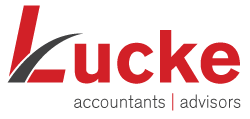Jeff Lucke, CPA, is the founder of Lucke & Associates, with an entrepreneurial background. Jeff has had ownership interests in businesses within several industries including automotive, construction, healthcare, telecommunications, and restaurants, as well as being active in real estate. As an owner of a growing CPA firm and other businesses, he has gained unique insights into the challenges and issues that face other growing businesses that most other CPAs do not have. This kind of knowledge ultimately benefits every one of the firm’s clients. He is very involved with clients and becomes deeply involved in their businesses and helping them succeed. Jeff is a graduate of the University of Nebraska and holds a Bachelor of Science in Accounting; his professional affiliations include the AICPA and KSCPA. Jeff currently serves a board member for his community on the Construction Financial Managers Association, the American Diabetes Association, and Big Brothers Big Sisters.
Most small businesses aren’t yet accepting bitcoin or other virtual currency payments, but more and more larger businesses are. And the trend may trickle down to smaller businesses. What are the tax consequences? The IRS has yet to offer much guidance, but it has established that bitcoin should be treated as property, not currency, for…
For business owners with kids in high school or college, hiring them for the summer can provide many benefits. One is tax savings. By shifting business income to a child as wages for services performed, you can turn high-taxed income into tax-free or low-taxed income. The Tax Cuts and Jobs Act’s near doubling of the…
Did you know you can exercise some control over your charitable endeavors using a donor-advised fund (DAF)? As the name implies, recommendations are integral to a DAF. First, you contribute to a fund typically managed by an independent sponsoring organization. The minimum contribution generally is $5,000. In exchange for handling the management of the fund,…
The Tax Cuts and Jobs Act restricts the losses that owners of pass-through entities (including sole proprietors) can currently deduct. For tax years beginning in 2018 through 2025, an “excess business loss” can’t be deducted in the current year. This is the excess of your aggregate business deductions for the tax year over the sum…
This summer are you going on a business trip in the U.S. and tacking on some vacation days? Are you a business owner or self-employed? You may be able to deduct some of your expenses. Transportation costs to and from the business activity location may be 100% deductible if the primary reason for the trip…
They say you’ve got to spend money to make money. But that doesn’t mean business owners should accept high operational costs. Cost control is a formal management technique through which you evaluate operations and isolate activities with excessive expenses. It forces you to ask tough questions about the efficiency of your business, how much you’re…
IRS examiners use Audit Techniques Guides (ATGs) to prepare for audits, and small business owners can use them, too. Many ATGs target specific industries, such as construction. Others address issues that frequently arise in audits, such as executive compensation and fringe benefits. Although ATGs were created to enhance IRS examiner proficiency, they also can help…
Now that small businesses and their owners have filed their 2017 income tax returns (or extensions), it’s a good time to review the Tax Cuts and Jobs Act (TCJA) provisions that may significantly impact their taxes for 2018 and beyond. Depending on your entity type, either the new 21% corporate tax rate or the new…
For business owners, it may seem impossible to control health care benefits costs. The trick is taking a multipronged approach. For example, don’t rely on vendor-provided communications: Actively interact with employees. Use metrics to analyze benefits utilization and identify utilization gaps where you may be losing money. Engage an outside expert to conduct an ROI…
“Blockchain” may sound like something that goes on your car, but it’s actually a digitally distributed ledger typically shared on a peer-to-peer network. Entries are stored in blocks, with each block containing a timestamp and providing a link to the previous block. Nothing can be altered without changing every block under the approval of most…










